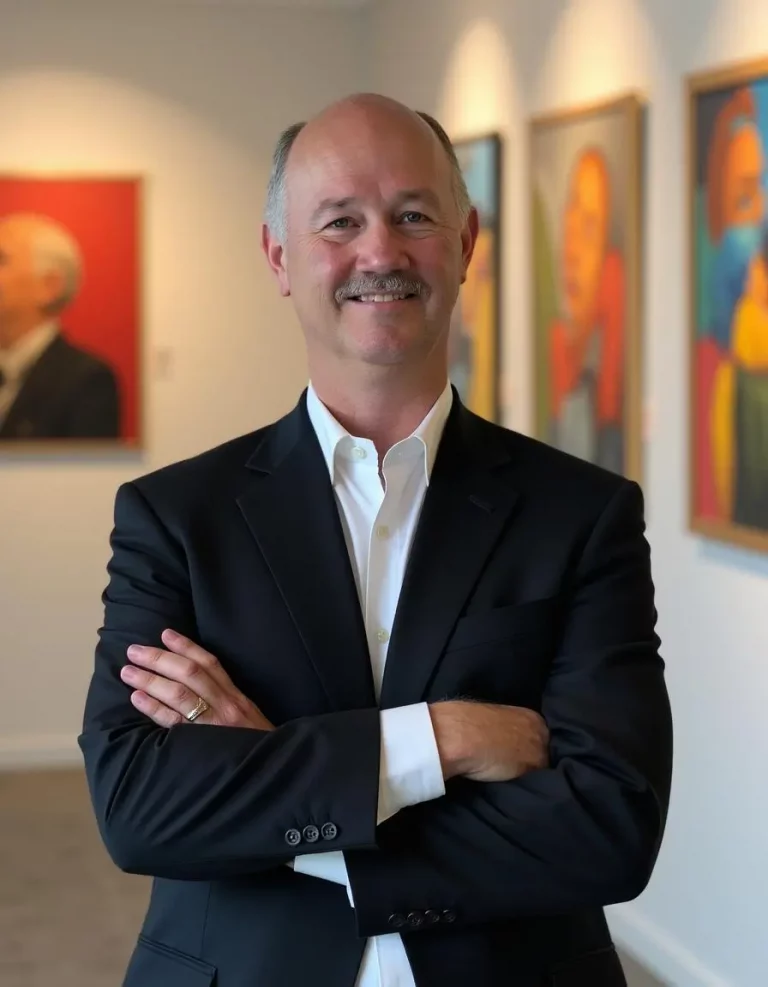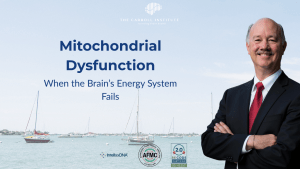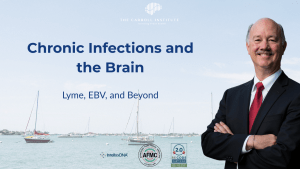How Does Functional Neurology Help Alzheimer’s Disease?
Last Updated: October 2025
- Functional neurology identifies which brain pathways have gone dormant—not just the symptoms—and then uses targeted cognitive drills to retrain those circuits.
- This works because of neuroplasticity: the brain’s ability to reorganize, adapt, and build new connections at any age.
- At The Carroll Institute in Sarasota, we combine functional neurology with the Bredesen ReCODE protocol to address both root causes and circuitry, so patients often regain clarity, memory, and confidence.
Functional neurology helps identify which brain pathways have weakened and uses targeted exercises to rebuild them — complementing the ReCODE Protocol for Alzheimer’s recovery.
What Is Functional Neurology?
Functional neurology is an advanced, evidence-based approach that evaluates how the brain communicates with the body and, more importantly, where that communication has broken down. Rather than masking symptoms, we look for specific regions and networks that are underperforming and then apply precise, repeated stimulation to restore function.
In other words, we don’t just ask, “Is there memory loss?”—we determine which pathways (frontal, temporal, parietal, cerebellar, vestibular, oculomotor, and more) are not synchronizing properly. Consequently, we can design targeted rehabilitation that helps those exact circuits re-engage.
How It Differs From Conventional Alzheimer’s Treatment
Traditional care primarily relies on medications to adjust neurotransmitters. However, drugs rarely rebuild damaged or disconnected pathways. By contrast, functional neurology asks: Which circuits are weak? Which networks aren’t talking? And how can we retrain them? As a result, we aim to restore function, not just reduce symptoms.
The Power Of Neuroplasticity
Neuroplasticity is the brain’s innate ability to adapt, reorganize, and grow new connections. We actually witness this every day, even if we don’t always recognize it. For example, after a stroke or head injury, people attend physical therapy and learn to walk or use their hands again. They’re not just “getting stronger”—they’re literally retraining the brain to route function through new pathways.
Similarly, functional neurology uses specific, repeated inputs to awaken underactive brain regions and reconnect them with the rest of the network. Because these drills are personalized and progressed over time, they steadily reinforce the pathways responsible for memory, attention, balance, and processing speed.
How Functional Neurology Helps Alzheimer’s Patients
- Identify What’s Not Working: We perform detailed neurological and cognitive assessments (including eye-movement, balance, vestibular, coordination, and executive function testing) to map which regions and circuits are underperforming.
- Design Targeted Drills: Based on those findings, we prescribe cognitive exercises, oculomotor and gaze-stability drills, sensory-motor integration, and balance/vestibular retraining to stimulate the exact pathways that need rebuilding.
- Rebuild Through Repetition: Because the brain changes with repetition, we progress intensity and complexity over time. Consequently, patients often notice better word recall, faster processing, steadier balance, and improved multitasking.
What This Looks Like At The Carroll Institute
Our approach is both comprehensive and precise. We begin with a whole-brain, whole-body assessment, and then we integrate functional neurology with ReCODE so the brain has the metabolic capacity and the circuit-level training to improve. Meanwhile, we monitor progress objectively and adjust your plan every 8–12 weeks.
Training & Expertise: Dr. Garland Glenn completed diplomate training in Functional Neurology directly under Dr. Ted Carrick—founder and director of the Carrick Institute and widely regarded as the father of functional neurology (which predated functional medicine). While living in Amsterdam, Dr. Glenn completed 500+ hours of advanced functional neurology training. Therefore, patients at The Carroll Institute benefit from a depth of neurological expertise that is rarely available in integrative clinics.
For local patients, see Alzheimer’s Treatment in Sarasota to learn how these programs are applied in practice.
Why Pair Functional Neurology With ReCODE?
The Bredesen ReCODE protocol identifies and corrects the root causes of decline—such as inflammation, insulin resistance, toxins (mold/heavy metals/chemicals), infections, hormone/nutrient deficits, sleep issues, and vascular/oxygenation problems. However, even after the biochemistry improves, the brain still needs to relearn efficient patterns. That’s where functional neurology accelerates results, translating metabolic healing into daily-life performance.
What Patients Often Notice
- Clearer thinking and attention
- Improved word recall and processing speed
- Better balance, coordination, and confidence
- More stable mood and resilience
Although every journey is unique, these functional gains commonly build month by month, especially as drills progress and root causes are corrected. In short, you’re not only managing symptoms—you’re retraining your brain to work better.
A Familiar Analogy: Rehab For The Brain
Just as physical therapy helps people relearn walking after a stroke, functional neurology helps people relearn thinking and coordination after cognitive decline. Because neuroplasticity is lifelong, meaningful progress is possible at any age—especially when therapy is personalized, progressive, and paired with ReCODE.
Related Reading
- Can Alzheimer’s Disease Be Reversed?
- Alzheimer’s Treatment in Sarasota
- Can Alzheimer’s Be Prevented?
Book a Discovery Call to explore functional neurology as part of your treatment plan.
Sources
- Reversal of Cognitive Decline: A Novel Therapeutic Program
- Rationale for a Multi-Factorial Approach for the Reversal of Cognitive Decline
- Sustained Cognitive Improvement Following a Precision Medicine Protocol
- Carrick Institute for Graduate Studies
Medically reviewed by Dr. Garland Glenn, DC, PhD, IFM, AFMC
The Carroll Institute — Sarasota, FL
Learn About Our ReCODE Program | About Dr. Glenn | Book a Discovery Call
This content is for educational purposes only and does not substitute for personalized medical advice.

Dr. Garland Glenn, DC, PhD, IFM, AFMC
Founder & Clinical Director, The Carroll Institute — Sarasota, FL
Dr. Garland Glenn is a board-certified chiropractic physician and functional medicine practitioner specializing in cognitive health, neurodegeneration, and root-cause medicine. Certified as an AFMC (Advanced Functional Medicine Clinician) and Institute for Functional Medicine (IFM) trained, he has also completed over 500 hours of advanced training in Functional Neurology under Dr. Ted Carrick, founder of the Carrick Institute.
At The Carroll Institute, Dr. Glenn leads Sarasota’s only ReCODE-certified Functional Neurology program, helping patients reverse or prevent cognitive decline through the Bredesen ReCODE Protocol, neuroplasticity exercises, and personalized functional medicine care.
Learn more about his background and approach at About Dr. Garland Glenn.
– schedule now –
free discovery call
To help you get started, we offer a free 20-minute Discovery Phone Consultation. During this call, you will be able to talk with one of our Certified Brain Health Coaches about what going on with you or your loved one and find out if we can help. Please review our FAQs prior to scheduling your free call. We look forward to talking with you soon and helping you Save Your Brain.
(yes, it’s totally free!)
ReCODE® is a registered program developed by Dr. Dale Bredesen and licensed through Apollo Health. Dr. Garland Glenn is a certified ReCODE practitioner.



